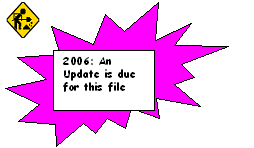School of Biological Sciences
Natural Resources: depletion, pollution and toxicology
[ BIOL202 Home | Aquabiology at Liverpool ]
School of Biological Sciences |
|
|
|
Natural Resources: depletion, pollution and toxicology[ BIOL202 Home | Aquabiology at Liverpool ] |
 The Consequences of the Pollution of Freshwaters
The Consequences of the Pollution of FreshwatersWhy should we be concerned about the pollution of freshwater?
Surface waters are the source of much of our drinking water, sometimes the source of food such as fish and yet is used for the cheap and convenient disposal of effluents. We should be particularly sensitive to the potential impacts of this since the majority of our drinking water in Liverpool comes from the river Dee in North Wales. The river Dee is a relatively clean river but it does receive the effluents from Wrexham sewage works before flowing to Chester where Liverpool's tap water is extracted.
In addition to effluent discharges, the land that the river water flows past
(and thus drains) is the recipient of a wide range of potential pollutants
including the sludge
solids from sewage works. These solids are associated with the non-degradable
pollutants such as heavy metals and persistent organic pollutants in the
original effluents. (These pollutants will be discussed later in the course and
the problems of sewage treatment will be discussed in detail in Lecture 13
The PowerPoint File used for the first part of Lecture 6 is available
here ![]()